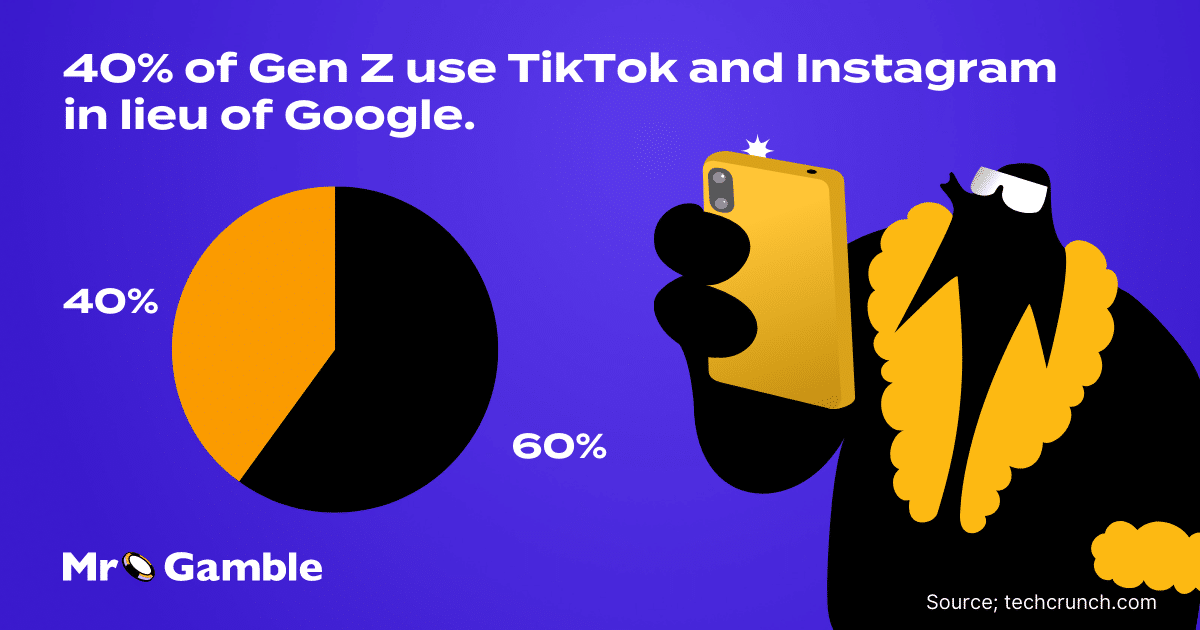Understanding the Next Generation of Players

The iGaming industry is in perpetual motion, thanks to the constant technological advancements in terms of payment methods, responsive designs, and gameplay mechanics. But the biggest shift that stands in our way – the shift that is sadly seldom discussed – is the generational shift.
Generation Z – those born in the late 90s or early 00s – feel largely uncatered to as casino brands still tend to focus on the “Old Reliable”, clinging to trends and sensibilities that are unappealing to the new generation of players.
It’s impossible to create welcoming spaces without first understanding the wants and needs of the new generation of players. As players become more tech-savvy, their expectations rise, requiring companies to continually innovate their marketing strategies.
Generation Z Players, in Broad Strokes
As we shift focus to the younger generation, it’s clear that the iGaming landscape is changing, influenced by the distinct behaviours, trends, and preferences of Millennials and Gen Z players.
Research suggests that these generations, often dubbed ‘digital natives,’ value experiences over material possessions – in stark contrast to what we saw from the players of previous generations.
The biggest evidence of this is the rise of micro-betting, which allows fans to wager small amounts on outcomes as minor as a coin toss. Any winnings from this are minimal, but that’s not the point for Gen Z players.
These new players seek out social, immersive, and interactive experiences. A study by YPulse found that 58% of Gen Z and 53% of Millennials prefer experiences that stimulate their senses and promote social interaction.
Sitting by yourself at the slot machine does not exactly scratch this itch.
Gaming Preferences
In terms of gaming preferences, traditional games are taking a back seat. Only 44% of Millennials and Gen Z players prefer casino table games; the vast majority lean towards skill-based games or ones that have elements of strategy.
An amusing detail: barely half of Zoomers consider themselves sports fans, which is greatly illustrated by the dropping viewership of large sports events. This lack of interest, however, doesn’t stop Gen Z from flocking to sports betting.
Sports and eSports betting is one of three potential pillars of Gen Z iGaming, the other two being fantasy sports, and social casino gaming.
But this doesn’t mean good old-fashioned slots don’t have anything to offer. If we take a look at the video game industry, we can see a plethora of gacha games, loot boxes, battle passes, randomised rewards, etc.
It seems that the thrill of leaving everything in the hands of Lady Luck is universal, even if one player values the experience itself over the reward.
The focus, then, should be on other aspects of iGaming. For example, new players expect everything to be frictionless and at most a couple clicks away. Raised in a world dominated by technology, they demand fast, responsive, and mobile-friendly gaming platforms.
Millennials may have paved the way for mobile gaming but it’s Zoomers who indeed took it to another level. Naturally, the same goes for payment methods, with Gen Z opting for modern payment solutions with fast deposits and withdrawals like e-wallets and mobile payments.
The Impact of Social Media and Influencer Marketing

The rapid rise and fall of different social media platforms may give those of us from older generations a whiplash. What was hip and cool only a decade ago (Facebook), is now a public square for dads and moms.
But the biggest thing that should give us pause is this: social media platforms have now become the primary search engine for young people. Almost 40% of Gen Z use TikTok and Instagram in lieu of Google.
SEO, SEM and PPC marketing is in for a major shakeup.
The government’s hurried attempts to regulate influencer marketing is all the evidence we need to see how powerful social media marketing is. Influencers have become new-age celebrities in their own right, capable of swaying opinions, sparking trends, and shaping the interests of their followers.
However, it would be shortsighted to see influencers as the conduits of advertising channels. While a celebrity promoting a product on their Instagram page may offer a bigger ROI than a TV ad, this misses out on Gen Z’s demand for a sense of social inclusion.
One of the biggest draws that influencers offer is the two-way interaction that allows for real-time feedback, responsive content, and giveaways. It’s for these exact reasons that live-streamed gaming sessions have in many ways taken the place of old-school reviews.
If you’ve ever been to Twitch, you probably know what the most popular subsection of streams is – Just Chatting, where streamers simply share their life stories. (And no, I don’t get it either.)
The key to Gen Z’s heart is to forge a connection between the viewer and the brand in a dynamic digital space. I’m proud to say that Mr. Gamble was one of the first brands to ride this wave, with our MrGambleSlots Twitch channel allowing us to tap into a new audience.
The Challenge of Immersive Experiences
A pitfall for many companies is thinking that everything new automatically attracts Gen Z customers, in a build-it-and-they-will-come kind of way.
It’s why we have seen the emergence of virtual reality, augmented reality and even metaverse casinos over the last decade. While brands continue to tout the phrase “immersive experiences”, the reality – or, in this case, virtual reality – is often disappointing. Despite the supposed potential, none of these fads have proven their mainstay power yet.
But I believe it’s not the inherent flaw in the technology that’s to blame for it, but rather our way of approaching it.
The design and overall experience is, often justifiably, seen as unwieldy and too complex. If a new player can’t access the game of their choice in two clicks, they might as well not bother with it.
This is, again, what the industry dinosaurs need to understand: your wealth of experience is often working against you as you try to win the minds and hearts of the new generation with old tricks. We need to rethink the way we engage players, both in terms of games as well as user interface.
Innovate or Fade Away
Reaching out to Gen Z is an existential challenge for casino brands. A large portion of Zoomers are not currently of age to gamble, which gives our industry some time to prepare for the inevitable passing of the torch.
In gambler’s terms, our industry is a high-stakes game, and the rules are simple: innovate or fade away. Embracing new technologies, understanding the digital landscape, and tailoring strategies to meet the demands of a new generation are the ingredients for success.
The next generation of players is coming. Are we ready to meet them?

























